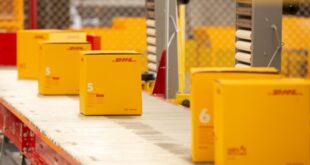The Inland Empire isn’t creating nearly as many startup businesses as it was a few years ago, a report has found.
In 2021, the percentage of businesses in Riverside and San Bernardino counties that were considered startups was 2.8 percent, according to the 2022 State of Entrepreneurship report, released on March 30 by the Inland Empire Center for Entrepreneurship at Cal State San Bernardino.
At the time, that was a solid number: the Inland region “had the strongest accelerating trend for the rate of new entrepreneurs in the initial post-pandemic period as compared to the national and state average,” the report states.
But things have changed since then, and not for the better.
Between the start of 2021 and the end of last year, when the survey concluded, the percentage of businesses in the Inland region operated by new business owners – defined as anyone who works an average of 15 or more hours per week in their business regardless of its size – fell to 2.2 percent.
While California and the United States both reported similar declines in startup businesses during that time, neither was as steep as the drop that occurred in the Inland region, said Mike Stull, director of the entrepreneurship center.
“Before COVID, we were ahead of the nation but behind California in startups, which was very good,” said Stull, who teaches in the Jack H. Brown College of Business & Public Administration at Cal State San Bernardino. “Now we’re dropping a lot. If you look at the chart, the Inland Empire is a dive bomber.
“We’re well below the national rate and California [2.9 percent and 2.4 percent, respectively], which is not good.”
The report distinguishes between necessity entrepreneurship and opportunity entrepreneurship. Necessity entrepreneurship refers to new business owners who are working to support themselves and are producing something not considered innovative or groundbreaking.
Opportunity entrepreneurship creates a product or service that’s new to the market. Unlike a necessity entrepreneur, opportunity entrepreneurs – if they succeed – create well-paying jobs and drive market competition, which creates wealth.
“Opportunity entrepreneurship is very important to the economy,” Stull said. “You will always have necessity entrepreneurship, but it’s usually based on things that already exist. Opportunity entrepreneurship is riskier, but it tends to create more wealth.”
The report was put together by eight research associates from the entrepreneurship center and took about six months to complete. While it does not come to a definite conclusion, the study does speculate that “the current decline in startups may be due to larger economic factors, and not a fundamental [economic] issue in the region.”
It then identifies three possible reasons for the decline in startup businesses, not just locally but in California and nationwide: a strong labor market, rising labor costs, and fears of more inflation, perhaps even a recession.
Until recently, the media was rife with speculation about an economic slowdown. That talk has died down, but there is still enough unease about the economy to make the idea of starting a business from scratch seem a risky proposition.
“The economy has been a little shaky, or at least people have said it’s shaky,” Stull said. “We’ve had some inflation, and there’s been a debate about whether or not we’re in a recession, but we still have plenty of jobs.”
Without question, both the state and the local economy are performing well: during February, the most recent data available, California’s unemployment rate was 4.3 percent, the Inland Empire’s 4.5 percent, according to the state Employment Development Department.
Those are solid numbers, especially coming out of the pandemic, but high employment isn’t necessarily a good thing for possible startups, according to Stull.
“If you have a good job and you’re being compensated well, you’re probably going to take a wait-and-see approach to quit and starting your own business.”
Getting the right people needed to start a business – particularly managerial, engineering or financial talent – is difficult to do everywhere and especially so in the Inland Empire, according to the study.
“Finding talent is even more of an issue [now] due to the low educational attainment levels we see in the region,” the report states. “If you have a growing firm that needs talent, you have a much smaller pool to draw from in the [Inland] region, and this does act as a constraint in the quest to grow your business.”
The labor shortage also impacts supply chains, because suppliers are also having difficulty finding talent. That leads to supply shortages, longer lead times, and other issues that can devastate any business, especially one just starting out.
Better cooperation between businesses and the government would not only help all businesses, but it would also make it easier for new businesses to get started. Such an approach has already been done in the Inland Empire, according to Stull.
Former Riverside Mayor Ron Loveridge would meet regularly with business owners to discuss their concerns and to find out how the city might help them. There was no formal agenda, and the business owners always had the last word, according to Stull.
“I know it would not be easy, but it can be done,” Stull said. “If you can create a dialogue between two parties that are often adversaries, then you can change things.”
Regardless of what approach is taken, something needs to be done about the decline of startup businesses in the Inland Empire, said Jay Prag, professor of economics at the Drucker School of Management at Claremont Graduate University.
“Start-ups are the seeds from which the economy grows,” Prag said. “Any downturn will have long-term repercussions because, at some point, you won’t have as many mature businesses as you should have.”
 IE Business Daily Business news for the Inland Empire.
IE Business Daily Business news for the Inland Empire.


